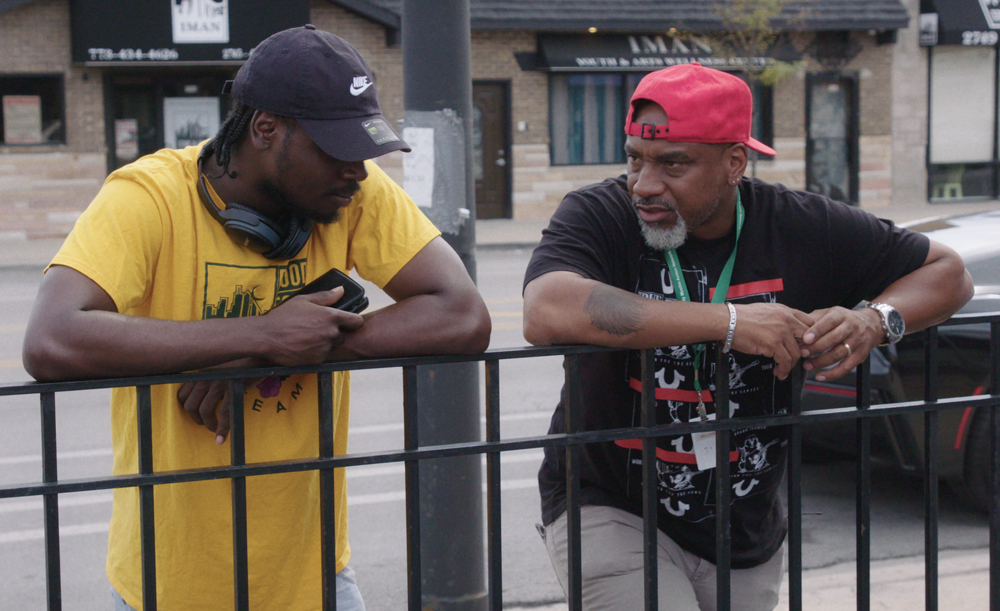Gunfire can occasionally be heard in the background but guns are never seen in “All These Sons,” a strangely fitting illustration of the violence that plagues Chicago and has taken the lives of far too many young African-American men, if not in body, surely in spirit. The toll isn’t viewed in deaths by co-directors Bing Liu and Joshua Altman, but the lives its prevented from moving forward when a prevailing attitude in the South and West Sides of the city is that when young men are told from the time they’re kids that they’ll be criminals, they can’t believe they’ll be anything else and such distrust is in the air that any disagreement or aggrievement leads to someone going for their gun.
In the deeply affecting doc, Liu and Altman show how simply labeling the issue as a tragedy is a distraction from taking meaningful action, instead tracing the proliferation of gangs and gun violence to neighborhoods that were purposefully divided along racial lines decades ago and the city creating a self-fulfilling prophecy by continue shutting down schools and depriving these areas of resources that could improve the quality of life for future generations. After a failure of local government in abdicating that responsibility, “All These Sons” focuses on two organizations that have stepped up to fill the void – IMAN on the West Side and MAAFA on the South Side that act as rehabilitation centers for ex-cons, perhaps taking practical steps to aid in their reintegration into society but primarily concerned with getting them to believe in themselves and their potential.
At City Hall, you believe MAAFA leader Marshall Hatch Jr. during a city meeting presided over by then-mayor Rahm Emmanuel when he asks Shemont Slaughter, one of the men in his care, “why can’t that be you?” But as Slaughter explains how he wasn’t ever even able to bring himself to vote when he thought it wouldn’t matter, it’s clear that a feeling of defeat has been as dangerous to the community as any weapons and despite the inspiration of the two organizations’ broader efforts, the change takes time and currently has to happen on an individual level. Besides Slaughter, Liu and Altman track Charles Woodhouse, who survived being shot 21 times, and Zay Manning, who comes to recognize he’s living with PTSD, and running a tidy hour-and-a-half, “All These Sons” actually feels like it could stand to be a little longer when the both the process itself and the effect it has on those who go through it is so compelling.
However, Altman and Liu appropriately contain things to a snapshot when capturing anything beyond the moment would be somewhat disingenuous, making clear from the personal evolutions of those who now lead the the programs such as MAAFA’s Billy Moore, who once served time for the murder of a high school classmate, that transformation is ongoing and it’s so easy to fall into despair when for as much individual progress is made, collective reform in the city as a whole can be frustratingly slow. Yet there’s enough hope in “All These Sons” to suggest it’s possible, with the inspiration of each person who finds confidence in themselves leading to believe we all can do better.
“All These Sons” does not yet have U.S. distribution.




